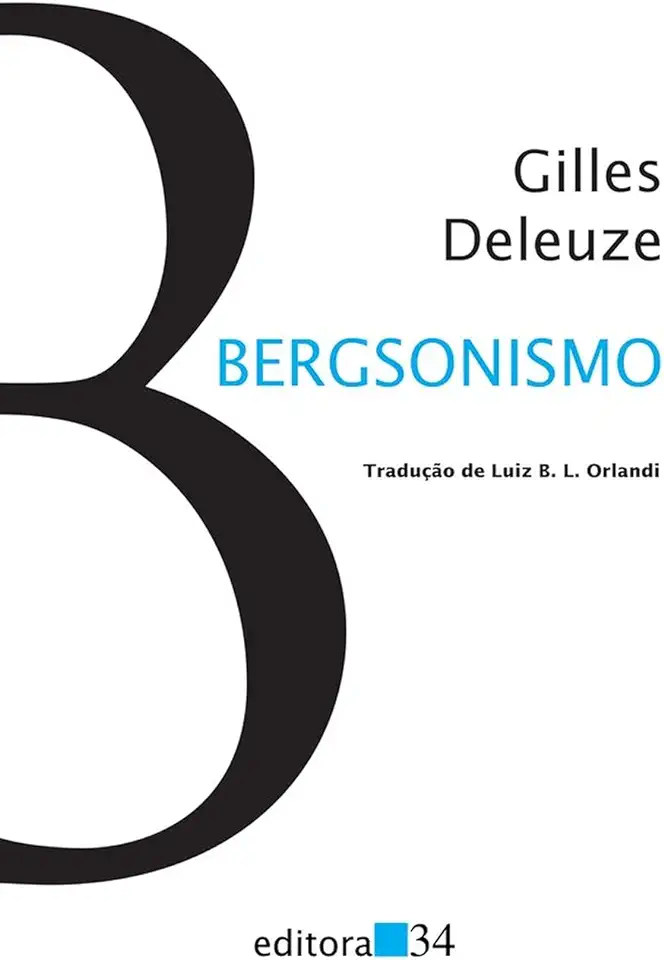
Bergsonism - Gilles Deleuze
Bergsonism: An Introduction to the Philosophy of Henri Bergson
In his groundbreaking work, Bergsonism, Gilles Deleuze offers a comprehensive and accessible introduction to the philosophy of Henri Bergson. Deleuze argues that Bergson's philosophy is a radical departure from traditional Western thought, and that it offers a new way of understanding the world and our place in it.
Bergson's Critique of Traditional Philosophy
Bergson begins his critique of traditional philosophy by arguing that it is based on a false conception of time. Traditional philosophy, Bergson argues, treats time as a homogeneous, linear continuum. This conception of time, Bergson argues, is inadequate to account for the lived experience of time. In reality, time is not a homogeneous continuum, but rather a heterogeneous, qualitative flux.
Bergson's critique of traditional philosophy extends to its conception of reality. Traditional philosophy, Bergson argues, treats reality as a collection of static, unchanging objects. This conception of reality, Bergson argues, is inadequate to account for the dynamic, ever-changing nature of the world. In reality, reality is not a collection of static objects, but rather a dynamic, creative process.
Bergson's Philosophy of Time
Bergson's philosophy of time is based on the idea that time is not a homogeneous, linear continuum, but rather a heterogeneous, qualitative flux. Bergson argues that time is not something that exists independently of the world, but rather something that is intimately connected to the world. Time, Bergson argues, is the very stuff of reality.
Bergson's philosophy of time has a number of implications for our understanding of the world. First, it means that the world is not a static, unchanging place, but rather a dynamic, ever-changing process. Second, it means that we cannot understand the world by simply observing it from a distance. We must immerse ourselves in the world and experience it directly. Third, it means that we are not simply passive observers of the world, but rather active participants in its creation.
Bergson's Philosophy of Reality
Bergson's philosophy of reality is based on the idea that reality is not a collection of static, unchanging objects, but rather a dynamic, creative process. Bergson argues that reality is not something that is given to us, but rather something that we create through our own actions.
Bergson's philosophy of reality has a number of implications for our understanding of ourselves. First, it means that we are not simply passive recipients of reality, but rather active participants in its creation. Second, it means that we have the power to change reality through our own actions. Third, it means that we are responsible for the world we create.
Bergson's Philosophy of Life
Bergson's philosophy of life is based on the idea that life is not a mechanical process, but rather a creative, spontaneous process. Bergson argues that life is not something that can be explained by the laws of physics and chemistry. Life, Bergson argues, is a unique phenomenon that cannot be reduced to its material components.
Bergson's philosophy of life has a number of implications for our understanding of ourselves. First, it means that we are not simply machines, but rather creative, spontaneous beings. Second, it means that we have the power to create our own lives through our own actions. Third, it means that we are responsible for the lives we create.
Conclusion
Bergson's philosophy is a radical departure from traditional Western thought, and it offers a new way of understanding the world and our place in it. Bergson's philosophy is a challenging and rewarding read, and it is sure to change the way you think about the world.
If you are interested in learning more about Bergson's philosophy, I highly recommend reading Bergsonism by Gilles Deleuze. Deleuze's book is a clear and concise introduction to Bergson's thought, and it is sure to leave you wanting more.
Enjoyed the summary? Discover all the details and take your reading to the next level — [click here to view the book on Amazon!]